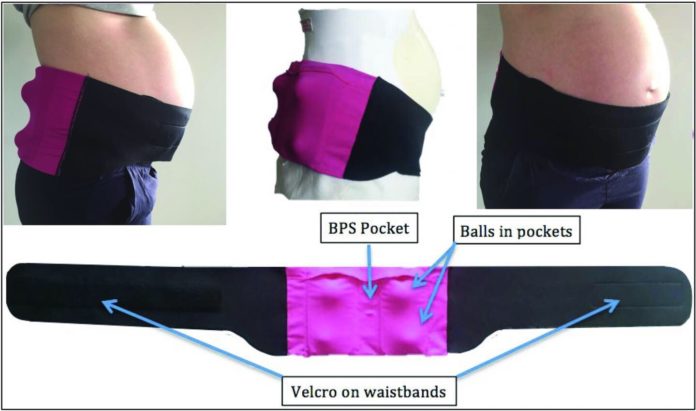Avoiding the supine position is better both for maternal and child health, study finds
Not sleeping on your back during late pregnancy could be good both for your and your baby’s health.
A new study suggests that an intervention to reduce supine sleep in late pregnancy may promote maternal and fetal health. Improvement was observed in both maternal and fetal parameters during the intervention night, on nights when the mother avoided sleeping on her back.
“Our findings suggest that women can comfortably sleep wearing a device around their waist that effectively stops them from sleeping on their back,” said principal investigator Jane Warland, PhD, associate professor at the School of Nursing and Midwifery at the University of South Australia in Adelaide.
Pregnant women spend about 25 percent of their sleep time in the supine position, which may be a risk factor for stillbirth and low birth weight
She added: “Using positional therapy to keep the pregnant mother off her back may reduce supine sleep in late pregnancy and may also provide both maternal and fetal health benefits, with minimal impact on maternal perception of sleep quality and sleep time.”
The study results have been published the Journal of Clinical Sleep Medicine.
According to the authors, most pregnant women spend about 25 percent of their sleep time in the supine position, which may be a risk factor for stillbirth and low birth weight.
This relationship may be due in part to an exacerbation of sleep-disordered breathing and deprivation of oxygen to the fetus when sleeping on the back. While positional therapy is a well-accepted way to reduce supine sleep time and increase side-sleeping in adults with sleep-disordered breathing, no prior studies have examined its use in pregnant women.
“Wearing a device that minimizes back sleep, and which is comfortable and doesn’t impact the mother’s sleep length or quality, may be a simple way to reduce stillbirth incidence, especially if the mother is at increased risk due to other factors,” Warland said.
The authors noted that additional research is needed to further explore the risks and benefits of positional therapy in late pregnancy.


